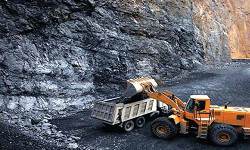Mining and Soil Exploration
Mining geology is an applied science which chains the principles of economic geology and mining engineering to the development of a defined mineral resource. Mining geologist and engineers work to develop an identified ore deposit to economically extract the ore. A mineral resource is a concentration or occurrence of material of intrinsic economic interest in or on the earth’s crust in such form, quality and quantity that there are reasonable prospects for eventual economic extraction. A geotechnical investigation will include surface exploration and subsurface exploration of a site. Sometimes, geophysical methods are used to obtain data about sites. Subsurface exploration usually involves soil sampling and laboratory tests of the soil samples retrieved. Site investigation or Soil explorations are done for obtaining the information about subsurface conditions at the site of proposed construction. Soil exploration consists of determining the profile of the natural soil deposits at the site, taking the soil samples and determining the engineering properties of soil. It also includes in-situ testing of soil.
- Heavy minerals in exploration
- Sequential exploration model
- Onshore and Offshore exploration
- Mineral exploration drilling
Related Conference of Mining and Soil Exploration
Mining and Soil Exploration Conference Speakers
Recommended Sessions
- Archaeology
- Ecology & Environmental Engineering
- Economic Geology & Geochemistry
- Environmental Geology
- Environmental Sustainability
- Geology and Geophysics
- Geology in Civil Engineering
- Global Warming & Climate Change
- Groundwater Foundation & Hydrology
- Marine Geology & Oceanography
- Mining and Soil Exploration
- Natural Hazards & Disaster Management
- Oil and Gas Reservoir
- Paleontology & Paleo-anthropology
- Petroleum Geology
- Remote Sensing & GIS of Environment
- Sedimentology Geology & Stratigraphy
- Soil and Rock Mechanics
- Structural Geology
- Volcanology & Plate tectonics

